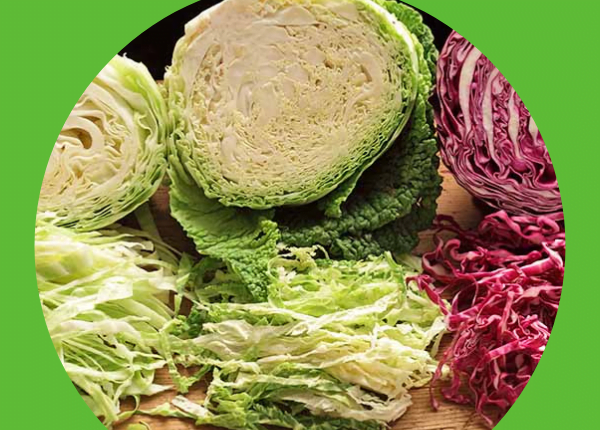20 reasons you need to eat cabbage more often – Cabbage is a cruciferous vegetable that comes in a variety of forms such as green, purple, and savoy cabbage. Cabbage is a versatile vegetable that can be eaten raw, cooked, or fermented. Cabbage is often overlooked in the vegetable aisle, but it has numerous health benefits that make it a must-have in your diet. Here are 20 reasons why you should consider adding cabbage to your diet:
20 reasons you need to eat cabbage more often
Cabbage is a nutritious and versatile vegetable that offers a wide range of health benefits.
Rich in Nutrients
Cabbage is packed with vitamins and minerals, including vitamin C, vitamin K, folate, calcium, potassium, and magnesium. These nutrients support a healthy immune system, strong bones, and good overall health.
Also read | 17 Amazing Health Benefits Of Eating Green Grapes
Antioxidant Properties
Cabbage is rich in antioxidants that help protect the body from damage caused by free radicals. Antioxidants can reduce inflammation, prevent chronic diseases, and promote healthy aging.
Digestive Health
Cabbage is high in fiber, which promotes healthy digestion and helps regulate bowel movements. The fiber in cabbage also supports the growth of beneficial gut bacteria, which can improve overall gut health.
Weight Management
Cabbage is low in calories and high in fiber, making it an excellent food for weight management. Eating cabbage can help you feel full and satisfied, which can reduce overeating and snacking.
Cancer Prevention
Cabbage contains compounds that have been shown to have anti-cancer properties. These compounds may help prevent the growth and spread of cancer cells in the body.
Heart Health
Cabbage is rich in nutrients that support heart health, including potassium and magnesium. Eating cabbage may help lower blood pressure and reduce the risk of heart disease.
Brain Health
Cabbage contains nutrients that support brain health, including vitamin K and anthocyanins. These nutrients may help improve cognitive function and reduce the risk of dementia and Alzheimer’s disease.
Skin Health
Cabbage is rich in vitamins and minerals that promote healthy skin, including vitamin C and beta-carotene. These nutrients can help reduce inflammation, prevent skin damage, and promote a youthful appearance.
Immune System Support
Cabbage is rich in vitamin C, which plays a crucial role in immune system function. Eating cabbage may help support a healthy immune system and reduce the risk of infections and illnesses.
Anti-inflammatory Properties
Cabbage contains compounds that have anti-inflammatory properties. These compounds can help reduce inflammation in the body, which may help prevent chronic diseases such as arthritis and inflammatory bowel disease.
You may also like | 7 Side Effects Of Eating Boiled Eggs Everyday
Versatile and Delicious
Cabbage is a versatile vegetable that can be enjoyed in a variety of ways, including raw in salads, cooked in soups and stews, and fermented as sauerkraut or kimchi. With its mild flavor and crisp texture, cabbage is a delicious and healthy addition to any meal.
Easy to Prepare
Cabbage is easy to prepare and can be cooked in a variety of ways. It can be sautéed, roasted, boiled, or steamed. Cabbage can also be eaten raw in salads or used as a crunchy wrap for sandwiches or tacos.
Long Shelf Life
Cabbage has a relatively long shelf life compared to other vegetables. It can be stored in the fridge for up to two weeks, making it a convenient option for meal planning and food prep.
Low Carb
Cabbage is a low-carb vegetable, making it an excellent choice for those following a low-carb or keto diet. It is also a good source of fiber, which can help keep you feeling full and satisfied.
Blood Sugar Control
Cabbage contains compounds that may help regulate blood sugar levels. Eating cabbage can be particularly beneficial for those with type 2 diabetes or those at risk of developing it.
Anti-bacterial Properties
Cabbage contains compounds that have anti-bacterial properties. These compounds can help protect against bacterial infections and promote a healthy gut.
Supports Liver Health
Cabbage contains nutrients that support liver health, including vitamin C and sulfur compounds. These nutrients can help protect the liver from damage and improve its function.
Also read: 11 Incredible Ailments You Never Knew Bitter Leaf Could Cure
Bone Health
Cabbage is a good source of vitamin K, which is essential for bone health. Vitamin K helps regulate calcium absorption and may help reduce the risk of fractures and osteoporosis.
Reduces Inflammation
Cabbage contains compounds that have been shown to reduce inflammation in the body. This can help alleviate symptoms of inflammatory conditions such as asthma and rheumatoid arthritis.
In summary, cabbage is a nutritious and versatile vegetable that offers a wide range of health benefits. Incorporating cabbage into your diet can help support overall health and well-being. Sources [ 1, 2, and 3 ]








